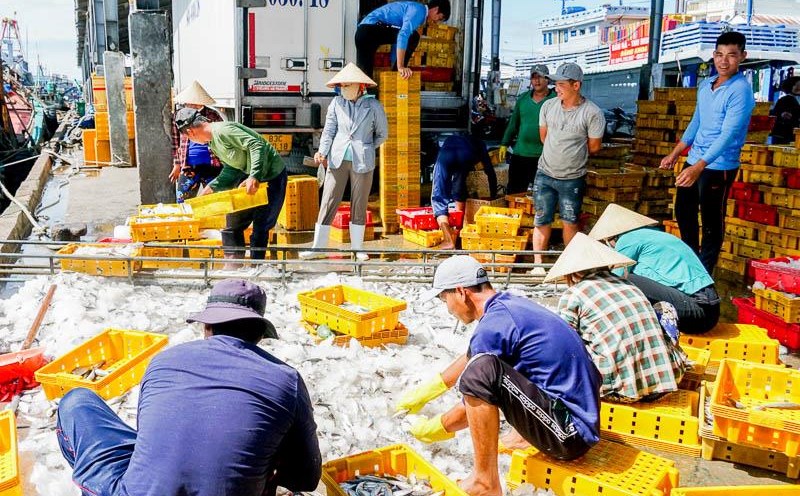This is a requirement stated in Conclusion No. 186-KL/TW of the Politburo and the Secretariat on the situation and results of the operation of the political system and local government at both levels.
Accordingly, in Conclusion No. 186-KL/TW, the Politburo and the Secretariat requested the Standing Committees of provincial and municipal Party Committees to focus on implementing the following contents:
Lead, direct, improve the quality of propaganda activities on party congresses at all levels, ensure correct political and ideological orientation, be extensive and effective, contribute to creating unity in the Party, consensus in society and strengthen the people's trust in the leadership of the Party.
Receive the opinions of the Politburo, complete documents, personnel projects, and preparations for the provincial and municipal Party Congresses for the 2025-2030 term; direct and guide affiliated Party Committees to urgently review, supplement, and complete the action program to implement the resolutions of the Party Congress at their level, ensuring closeness to orientation, synchronization, and unity with specific targets, roadmaps, and progress.
Continue to consolidate and enhance the smooth, effective and efficient operation of the commune level; strongly shift to implementing the task of socio-economic development, ensuring security and order, and caring for people's lives. The secretaries of the provincial and municipal Party Committees must directly direct to remove difficulties and obstacles; synchronously deploy measures to improve the operational capacity of commune-level authorities, meeting the requirements and assigned tasks.
Conclusion 186-KL/TW also clearly states the requirement to strengthen leadership and strong direction in reviewing planning and implementing projects, programs, and plans for socio-economic development, building an environment to support production and business development in the locality, determined to complete socio-economic development goals and targets in 2025 and the following years.
Review and properly assess the current situation of the staff, leadership and direction capacity, conditions for effectively organizing the implementation of tasks and powers of assigning authority from the district level to the commune level, especially the ability to continue implementing previous investment projects, implementing new investment projects and developing action plans and programs to promote socio-economic development, production and business in the area.
Continue to complete the adjustment of staff at the commune level; arrange enough staff, human resources, and professional and technical staff in various fields at the commune level; strengthen direction, close monitoring and guidance for localities in implementation.
Along with that, Conclusion No. 186-KL/TW also clearly states the need to continue reviewing and implementing plans to convert the functions and purposes of unused headquarters until after the merger; continue to synthesize the needs of public housing to develop appropriate arrangement and arrangement plans.
Prioritize investment in equipping additional information technology equipment for the commune level to meet the requirements of working on digital platforms.
The Ministry of Home Affairs has just issued Official Letter 7415/BNV-CCVC in 2025 on the plan to ensure commune-level human resources, including orientation for the list of commune-level job positions after the arrangement of administrative units.
In the immediate future, ensure the minimum number of civil servants at administrative organizations at the commune level according to the instructions in Official Dispatch 09/CV-BCD in 2025.
From there, determine the number of civil servants lacking to urgently supplement human resources (especially in the fields of information technology and digital transformation, accounting, land administration, construction... at the commune level) and positions directly serving people and businesses.
Official dispatch 09/CV-BCD in 2025 clearly states the criteria for determining the staffing of commune-level cadres and civil servants. In which, each commune-level administrative unit temporarily arranges an average of 32 positions/commune.










